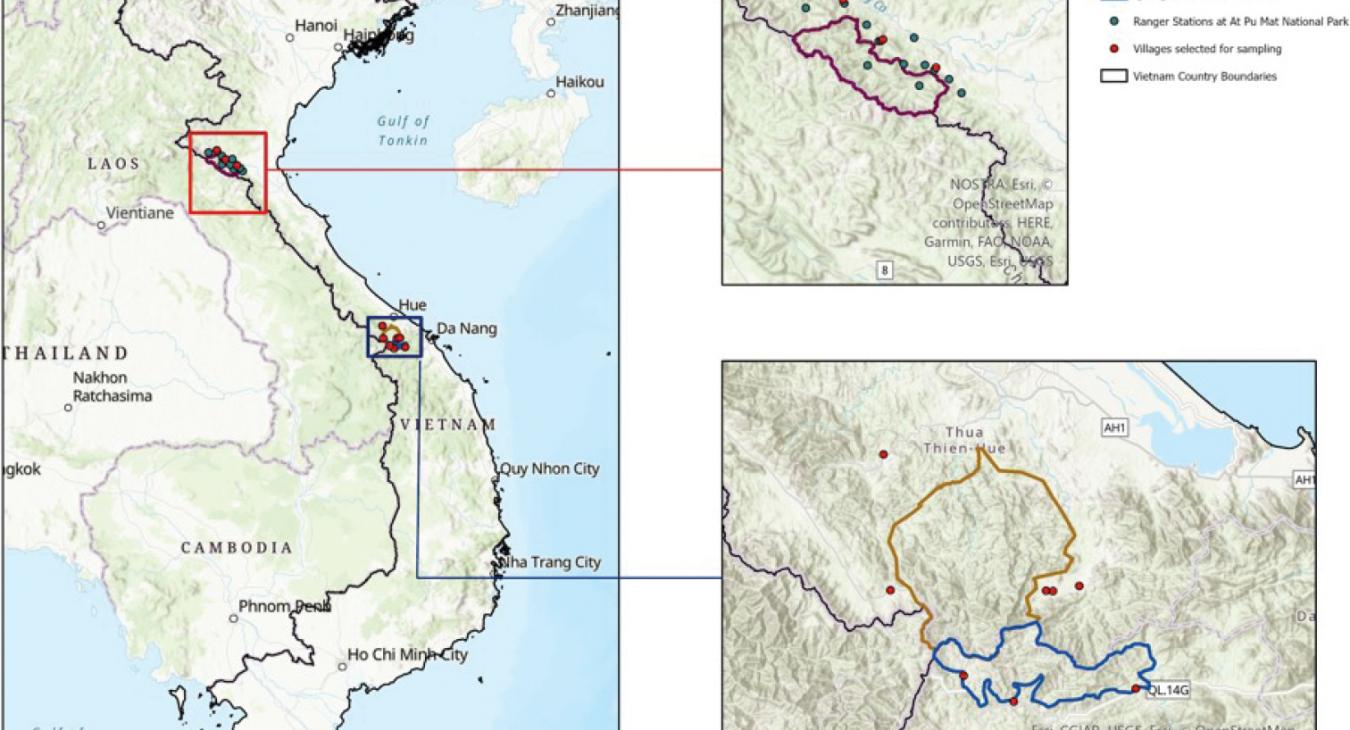Fauna and Flora International, UK
DEFRA
By emphasizing crime prevention and livelihood-level interventions, this project aims to reduce illegal wildlife trade in Vietnam's two intensive protection zones through novel application of community guardianship and ethical, authentic engagement of women and youth.
Vietnam is a well-known transit and destination country for trafficked wildlife. Despite many of its wildlife populations being close to extirpation by trade-driven poaching, Vietnam is one of the most biodiverse countries globally, with many endemic species while PMNP is one of Vietnam’s largest protected areas at 94,804 ha and forms the heart of the Western Nghe An Biosphere Reserve. The park is also transboundary with significant forest blocks in Laos, forming one of the largest, most important forest complexes in the region. PMNP is one of the highest priority sites in the region for the conservation of threatened and endemic mammal and bird species. Yet, PMNP faces considerable threats. Poaching for commercial illegal trade is the greatest immediate threat (either directly, or inadvertently as a result of indiscriminate industrial-scale snaring) to many of these species, including the highly-trafficked Sunda pangolin, as well as five threatened Annamite endemic species, saola, Owston’s civet, Annamite striped rabbit, the Annamite dark muntjac, and crested argus pheasant. These species are largely traded to wild meat restaurants in the region, and some species and derivatives are sold into international traditional medicine or pet markets. Commercial domestic and international trade is the greatest immediate threat to the project’s target species. Authorities have been unable to meaningfully control access into the forest. The large size of the forest and its extreme topography afford it natural protection, but park managers admit that illegal hunting, mainly accomplished by snaring, remains a serious issue. Without significant reductions in snaring levels, the protected area risks becoming yet another “empty forest” that is becoming increasingly common in Vietnam. Hunting with guns and illegal logging are less prominent, but are still reported. High rates of local poverty, demand for wildlife products in nearby towns and cities, and a number of recent roads built into the park for national security/border patrols, serve to compound the threats from IWT.
Traditional responses to wildlife crime are skewed towards more heavy handed and tough on crime approaches, similarly reflected in Vietnam’s revised Penal Code 2018. We know from other sectors, such as drug trafficking, that severe sanctions can limit evidence of effectiveness in deterring crime and can be harmful to communities and may even lead to an increase in offending; this project will leverage the extant knowledge base in support of conservation crime prevention and response. In the first half of 2020, 68% of convictions resulted in prison sentences in Vietnam. However, severe punishment can have serious negative consequences on individuals (e.g. dangerous conditions in prison and difficulty reintegrating post-release), families (e.g. reducing income and stability), societies (e.g. prison costs). There is also evidence that sentencing is applied inconsistently, unfairly and in a discriminatory way, e.g. with more marginalized ethnicities having higher rates of imprisonment. By emphasizing crime prevention and livelihood-level interventions/engaging communities at local level, this project will aim to limit the negative impacts of tough responses on individuals and communities that would otherwise exacerbate poverty.
Through this project, we will reduce illegal wildlife trade (IWT) in two intensive protection zones through novel application of wildlife crime prevention including community guardianship and ethical, authentic engagement of women and youth. We will advance knowledge and evidence impacts of crime prevention for IWT, and sharing learning.

